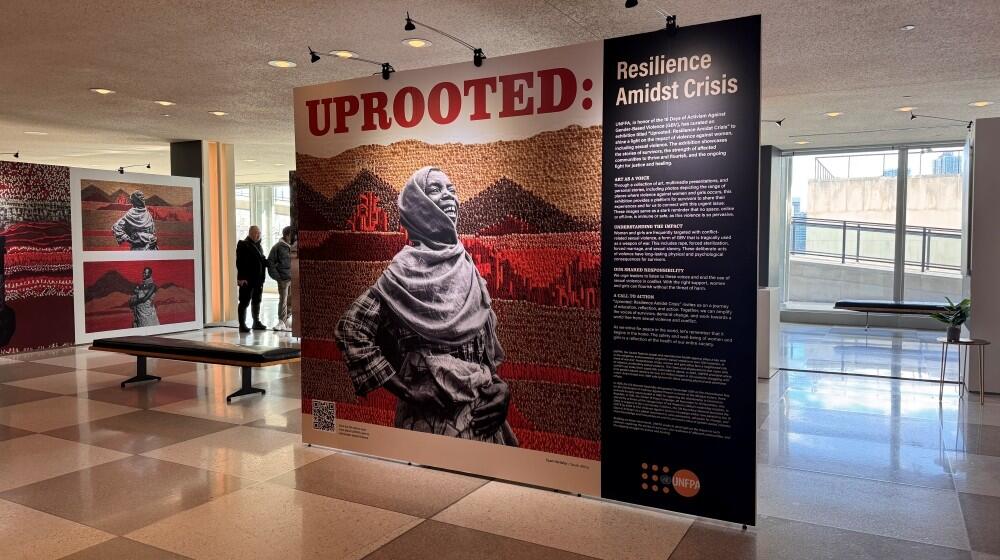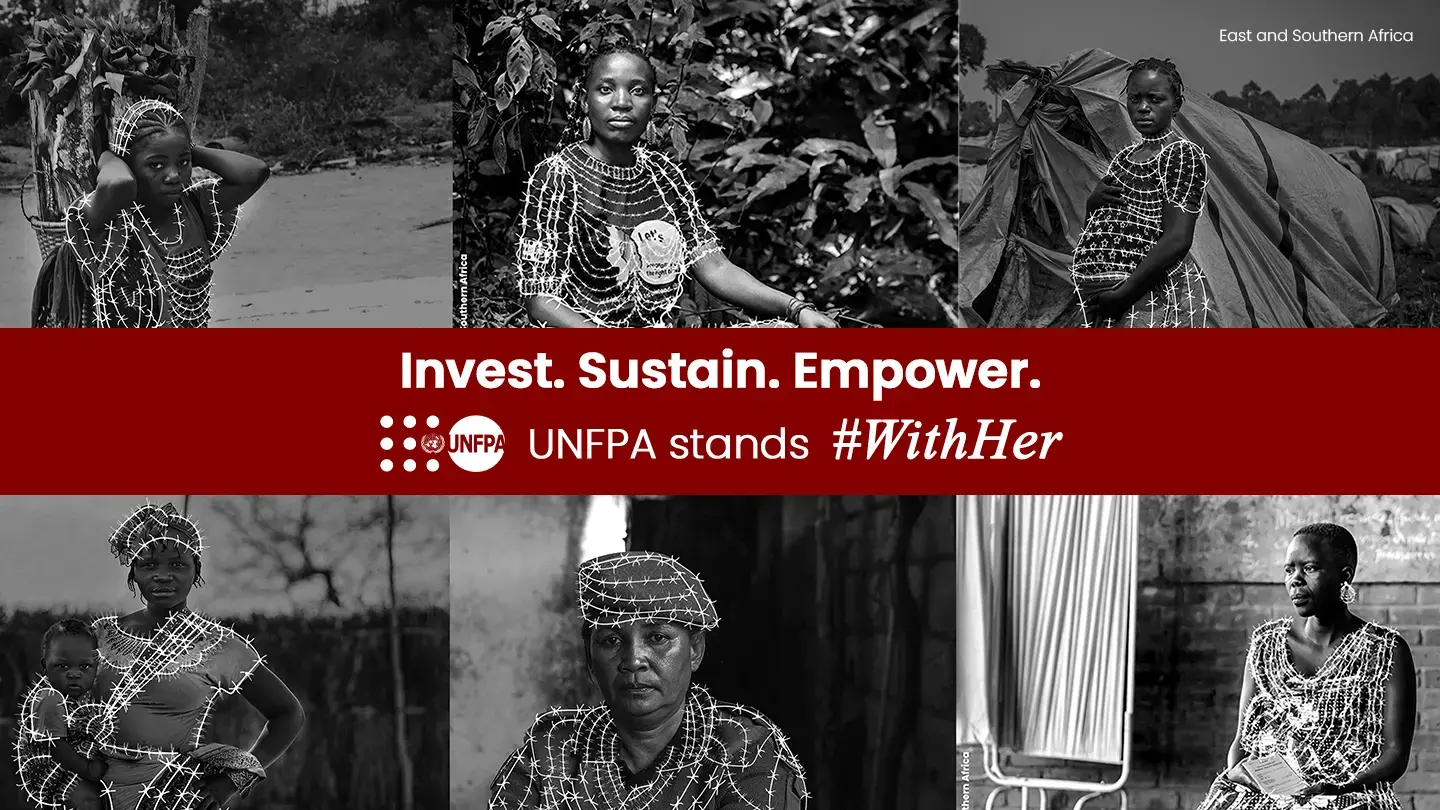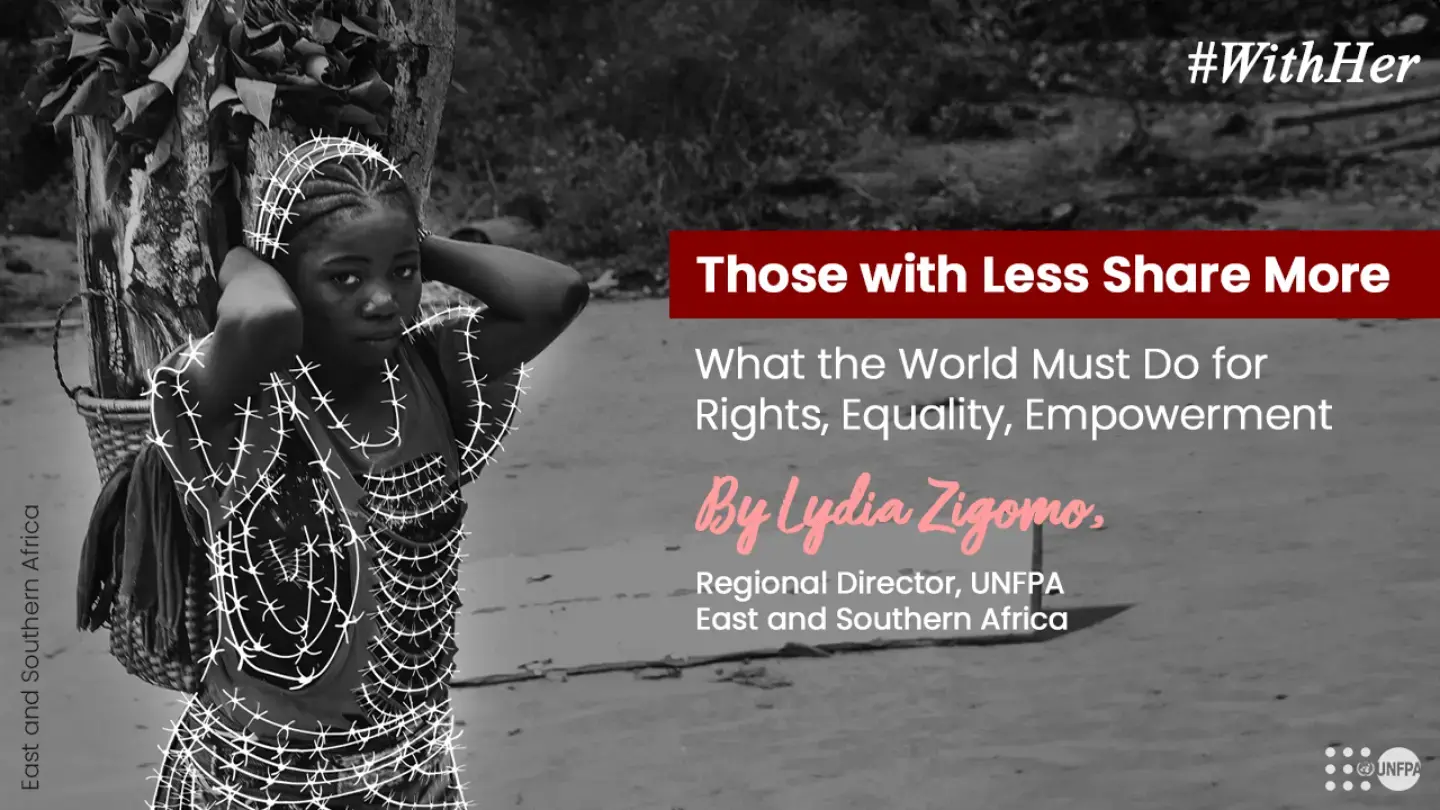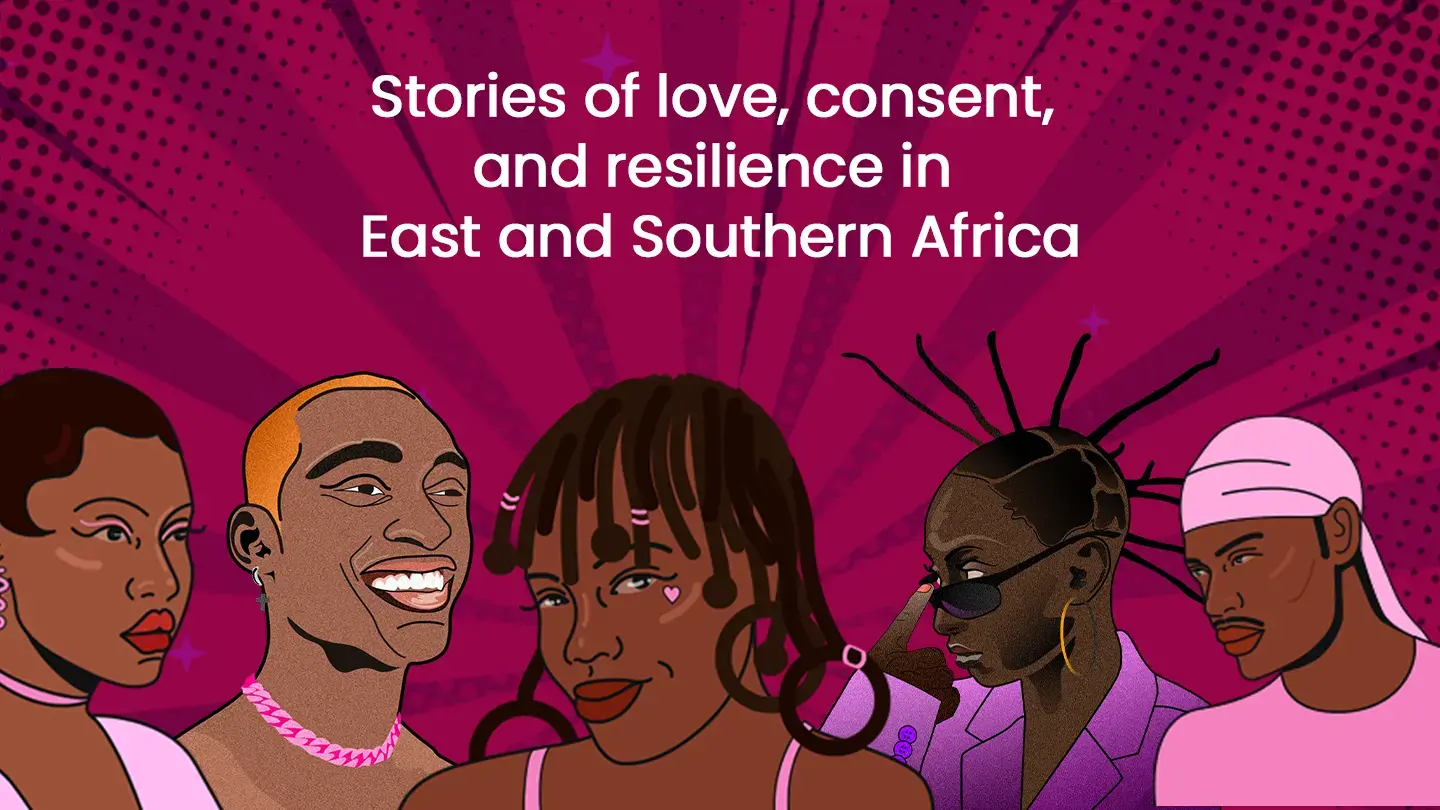By Cyan Haribhai, UNFPA East and Southern Africa
As a South African deeply connected to the rich and diverse history of East and Southern Africa, my art reflects my heritage while inspiring a deeper exploration of my reality through a creative lens.
When the UN’s 2024 16 Days of Activism art exhibition invited submissions, I knew I wanted to tell the stories of women and girls in our region whose resilience in the face of displacement defines grit, determination and dignity. This multi-media platform was the perfect space to raise their voices and highlight their experiences, showcasing both the challenges and the strength that emerge from one of the most crisis-affected regions in the world.
© UNFPA
The East and Southern Africa region has faced compounding humanitarian crises—conflict, economic struggles, and climate-induced disasters. These realities have displaced millions, exposing women and girls to unprecedented vulnerabilities. I have documented young women and girls with no access to education, health care services, and the agency to make decisions. Yet, despite the lack of access, the taboos and the stigma, there lies an unbreakable spirit, raw courage that can withstand most challenges. My series, Resilience in Displacement, seeks to encapsulate this spirit through the medium of digital collage, merging photography with textures of embroidered African fabrics.
© UNFPA Kenya
The fabrics in my work are deeply symbolic—they reflect the arid landscapes shaped by drought and El Niño's devastating impact. Textured to reflect the dry, cracked earth, they root the artwork in the environmental realities of the region. The choice of black-and-white photography is deliberate, depicting a stark and universal quality to the displaced women's portraits while keeping the focus on their narratives.
Central to the series is the color red—a visceral symbol of the courage, danger, and sacrifice inherent in displacement. Red tells the story of journeys marked by loss, heat, and risk, but also of the extraordinary bravery required to seek safety and rebuild in the middle of chaos. It is the fire of hope and the intensity of the fight for survival that unites these stories across borders.
As a South African, I carry with me the legacy of resilience from a land that has known both great struggle and amazing triumph. This heritage shapes my artistic vision, enabling me to connect cultural identity with advocacy. The interplay of color, fabric, and photography in this series draws on the aesthetic and emotional richness of African storytelling, ensuring the voices of displaced women and girls are not just heard but felt.
The UN exhibition's multi-media approach—art, poetry, rap, and videos—resonates with my belief that artivism is a powerful tool for change. It allows us to see beyond statistics to the human faces and stories behind displacement. At the opening, co-hosted by the US Permanent Mission to the UN and the Department of Global Communications, attendees from around the world engaged deeply with these narratives, reflecting the global urgency of addressing gender-based violence and displacement.
© UNFPA Mozambique
For me, this series is not just art—it is a statement, a tribute, and a bridge connecting viewers to the lived realities of East and Southern Africa. It is my hope that these stories of resilience inspire dialogue, action, and a shared commitment to a world where no one is forgotten or left behind.
Through art and advocacy, we can shine a light on the courage of women and girls and advance towards a future of Zero GBV and harmful practices. Their strength, their stories, and their resilience deserve nothing less.
The exhibit, Uprooted: Resilience in Crisis, explores the impact of gender-based violence through art, celebrating the resilience of survivors and advocating for justice and healing. Organized by UNFPA, the artworks are on display at UN Headquarters in New York until 7 February 2025. Learn more.





